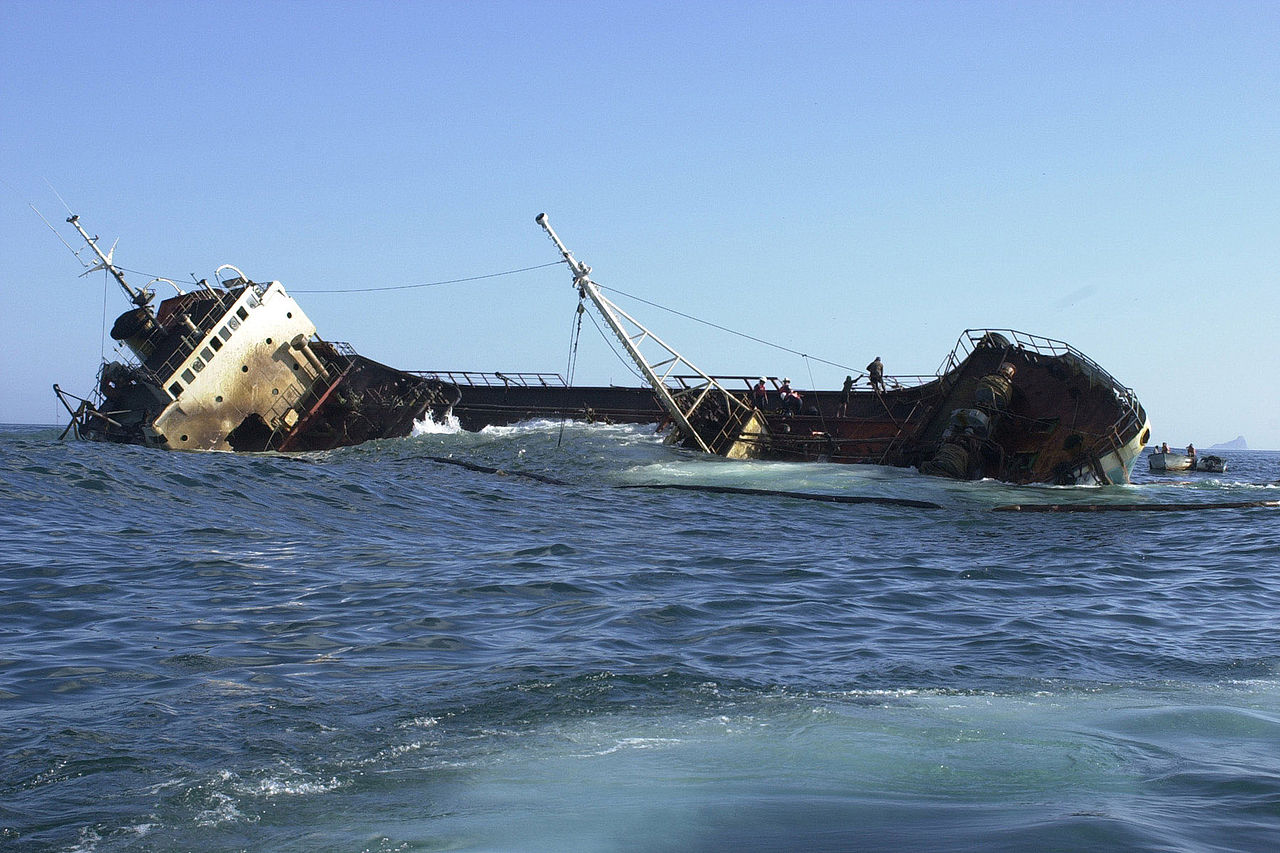Let me pose an unusual question: What do cats, avocados and oil tankers have in common? Answer: All three have become threats to the unique environment of the Galápagos Islands, part of Ecuador, located in the Pacific Ocean. Made famous by the work of Charles Darwin, they are home to unique species of penguin, marine iguana and giant tortoise, as well as 25,000 people. The introduction of non-native species such as cats, and the avocado plant, put pressure on the existing wildlife. There were previously very few natural predators on the islands, so the native animals were defenceless.
14 years ago today, a disaster took place that would pose one of the the greatest threats the paradise-like environment had ever experienced. On the evening of January 16th, 2001, oil tanker MV Jessica ran aground on Wreck bay. It was carrying a total of over 1 million litres of fuel, enough to fill over 13,000 average baths. Although specialist equipment was rushed in by the US Coast Guard, over half of this, around 660,000 litres, poured into the waters surrounding the island.[1] Predictions were bleak since even very small concentrations of oil can have devastating effects on wildlife. Ultimately, ocean currents helped change the course of the oil slick. The damage was not as extensive as it might otherwise have been. Nevertheless, 60% the population of Marine Iguanas had been wiped out within a year. It was an environmental tragedy, but a lucky escape from something worse.
As well as the clear ecological consequences of the spill, it raises important questions of responsibility and blame. Tourism of the Galapagos earns over $100 million for Ecuador each year. That income is vital to a country in which a quarter of its rural population doesn’t even have access to good quality water.[2] A loss of wildlife could devastate this industry. The world’s environmentalists were watching. The Ecuadorian government must have been under massive international pressure to act, to find who was responsible.
Yet who, if anyone, was to blame for the oil spill? After all, it was not deliberate. The ocean is notoriously unpredictable. The ship’s captain, Tarquino Arevalo, 58 years old at the time, viewed himself alone as guilty. With tears in his eyes, he admitted to reporters that he had made a mistake. He had been sleeping on the boat for four days after the accident, and was so dehydrated that he had to be hospitalised.[3] He was sentenced to 90 days in a naval prison.
Here are some other questions: What do we mean by justice? The captain was remorseful and acknowledged his culpability. How did jailing him remedy the situation? Did the prison sentence somehow undo the environmental damage? Is that really what justice means?
It may feel right, or satisfying, that a person who did wrong should suffer for what they’ve done. Surely true justice is for a person to be restored, not to be punished simply to satisfy those who have been wronged? What do you think?
[1] Report by the Charles Darwin Foundation, http://w.bird-rescue.org/pdfs/Impacts_of_Jessica_ver1.2.pdf, accessed 15 January 2015.
[2] http://data.worldbank.org/country/ecuador, accessed 15 January 2015.
[3] http://www.telegraph.co.uk/news/worldnews/1319572/Oil-spill-skipper-didnt-know-rock-was-there.html, accessed 15 January 2015.
